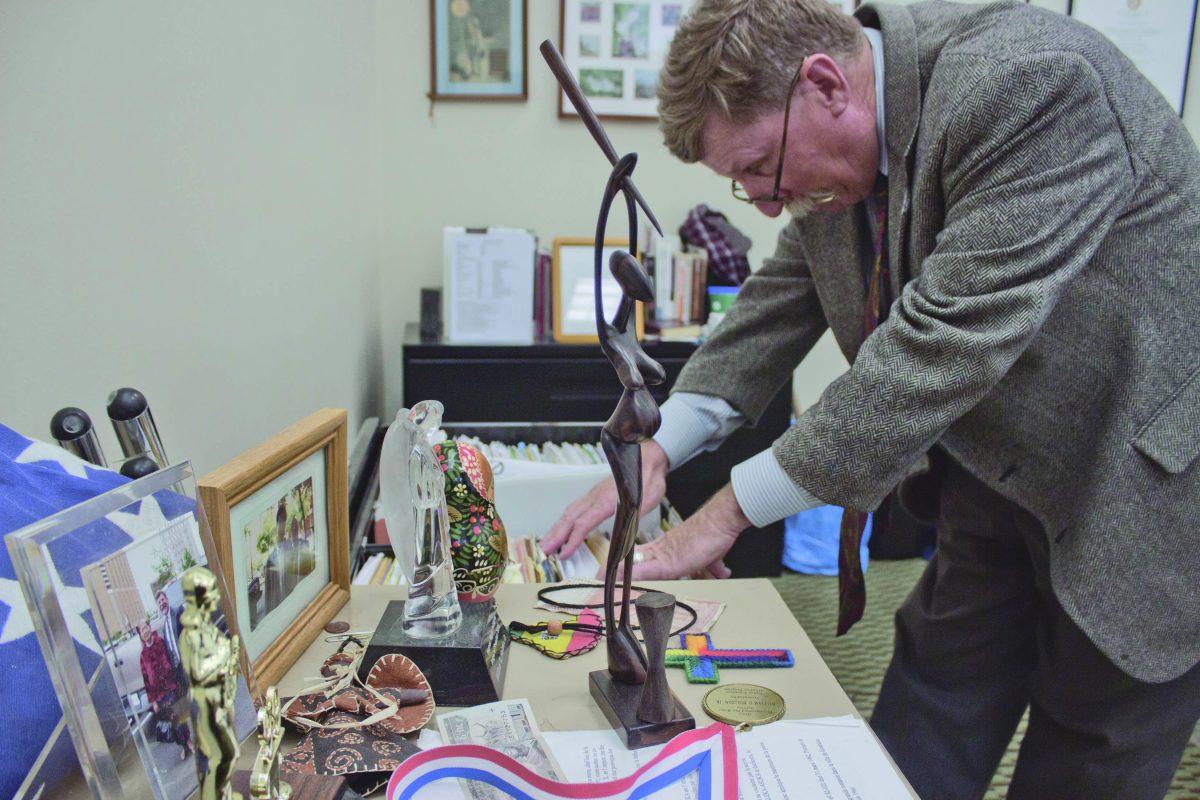Alumnus gives students opportunity to volunteer with Human Rights Initiative of North Texas
Being bilingual or multilingual can be a skill students take for granted, but at the Human Rights Initiative of North Texas it can actually help save lives.
HRI is a nonprofit organization that provides legal representation and social services to immigrants who are victims of human rights violations.
When political science professor Anthony Champagne invited alumnus and HRI Executive Director Bill Holston to campus to speak at a lecture in February, he gave students the opportunity to work for the organization.
“We rarely realize that our language skills can actually save people’s lives but this is an example of where you really can,” Champagne said.
Champagne asked Holston if he could recruit students to work with the organization as translators for asylum cases.
Noor Wadi, interdisciplinary junior, applied for the program to be an Arabic translator. Her family, originally from Palestine, immigrated to the United States seeking better opportunities.
“We have a long history of people being persecuted,” Wadi said. “We know what it’s like to be a refugee.”
At the lecture, she decided she wanted to work with HRI when she heard Holston speak about a Christian man living in predominantly Muslim Egypt who was tortured for his religion.
Wadi said that if she ends up working with the organization, it will help her get the experience she wants to work in human rights law.
“We still have so many cases of people who are American and are getting their rights taken from them,” she said.
Elisabeth Hagburg, communications and volunteer coordinator for HRI, helps find volunteer translators and said the initiative has two programs.
One is the Women and Children’s Program, which helps foreign-born children who suffer from abuse, neglect or abandonment as well as women and sometimes men who are victims of domestic violence, obtain a special kind of visa. Most of the time the clients speak Spanish.
The other component is the Asylum Program, which assists people from other countries seeking asylum. This program requires translators for many languages including French, Tigrynia, Amharic, Lingala, Urdu and Kinyarwanda.
“For all of our asylum cases, we feel that if they were deported from the U.S. or were forced to go back to their countries, they would face certain further persecution or possibly death,” Hagburg said. “So we really feel strongly with those asylum cases.”
Holston also said the need for Spanish translators is high because of an increase of children fleeing gang violence in Honduras and El Salvador.
The organization is currently looking for a Burmese speaker to translate for a youth worker who’s been tortured for advocating democracy in Myanmar, which is currently governed by a military dictatorship.
At the HRI headquarters near downtown Dallas, Holston’s office is decorated with colorful paintings and small tokens of appreciation from people he’s helped throughout the years working with the organization.
On a small table near his desk, he has a picture of the two Burmese youth workers he’s trying to help, a set of Russian stacking eggs given to him by a man who was beaten for being Jewish and Ethiopian money given to him by another man who spent years in prison for teaching and speaking up for democracy in his country.
The gifts have sentimental value to Holston, who truly enjoys his work.
“I love doing this,” he said. “I love the clients, I love the opportunity to use my legal skills in an effort to literally save lives. It’s very gratifying work.”














